A HEPA filter in an air purifier captures 99.97% of airborne particles as small as 0.3 microns. These filters are essential for reducing allergens and pollutants in the air.
An air purifier equipped with a HEPA filter is a powerful tool for improving indoor air quality. Initially designed to collect dust, pollen, mold spores, pet dander, and some viruses, this type of filter has become indispensable. Consequently, homes, offices, and healthcare settings widely use HEPA filters to ensure cleaner breathing environments.
These purifiers remove allergy and asthma signs. They also improve general health by removing dangerous particles from the air. A HEPA air purifier is a good and easy option for anyone who worries about their air quality.
The Science Behind air purifier HEPA Filter
The Science Behind HEPA Filters reveals the mystery of how our indoor air stays clean. Tiny but mighty, HEPA filters trap harmful particles. They are heroes in homes and hospitals alike. So, Let’s explore how they work!
What Hepa Stands For
Additionally, HEPA filters must meet strict standards to qualify under this designation, which stands for High-Efficiency Particulate Air. They capture at least 99.97% of particles.
Moreover, these particles are as small as 0.3 microns, meaning that dust, pollen, and smoke can’t escape a HEPA filter!
How air purifier Hepa Filter Capture Particles
A HEPA filter’s job is tricky. It catches tiny specks floating in the air. Imagine a net catching balls, but on a minuscule scale. Here’s how it works:
- Interception: Additionally, as air flows through, particles stick to fibers, effectively trapping them.
- Impaction: Meanwhile, larger particles crash into fibers and get trapped, enhancing the filter’s efficiency.
- Diffusion: Moreover, tiny, jiggling particles collide with fibers and stick to them.
The filter is like a maze for particles. They bump, stick, or get tangled. Clean air passes through. Our lungs say thank you!
Benefits Of Using Air Purifier Hepa filter
HEPA air purifiers stand out for their ability to cleanse the air with remarkable efficiency. They use advanced filters that capture particles as small as 0.3 microns. This means cleaner air in homes, offices, and any indoor space.
Improved Air Quality
Furthermore, HEPA air purifiers take air quality to the next level by trapping a wide range of pollutants, including dust, smoke, and mold spores. As a result, the air you breathe is fresher and cleaner.
- Captures up to 99.97% of airborne particles
- Consequently, HEPA air purifiers ensure a cleaner breathing space.
- Additionally, HEPA air purifiers effectively remove unpleasant odors.
Reduction Of Allergy Symptoms
These purifiers are vital for allergy sufferers. They significantly reduce allergens like pet dander, pollen, and dust mites.
- Moreover, less sneezing and itching are experienced with HEPA air purifiers.
- Furthermore, better sleep quality is achieved without allergy attacks with HEPA air purifiers.
- Consequently, HEPA air purifiers create a haven for those with breathing issues.
Long-term Health Advantages
Moreover, HEPA filters contribute to long-term wellness by diminishing exposure to harmful particles that can cause chronic illnesses.
- Furthermore, HEPA filters promote a stronger immune system.
- Additionally, HEPA filters support healthy lung function.
- Moreover, HEPA filters reduce risks associated with pollutants.
Types Of Hepa Filters In Air Purifiers
Furthermore, one of your best friends is the HEPA air purifier filter, fighting against smoking, pollen, and other dust particles in the air. Understanding the different HEPA filter types may help you select the ideal one for your needs.
True Hepa Filters
True HEPA filters are the gold standard.
They capture 99.97% of particles that are at least 0.3 microns in size.
- Allergens
- Bacteria
- Virus particles
These filters are tested and certified to ensure peak performance.
Hepa-type Filters
HEPA-type filters are similar to True HEPA filters but less efficient.
Moreover, they trap around 99% of particles that are 2 microns or larger.
- Pollen
- Dust mites
- Larger smoke particles
These filters are a budget-friendly option.
Performance Differences
Filter Type Particle Size Efficiency Common Uses True HEPA 0.3 microns, 99.97% Hospitals, Homes HEPA-type 2 microns, 99% General air quality improvement True HEPA filters offer the best protection against the smallest particles.
Furthermore, HEPA-type filters handle larger particles and improve air quality.
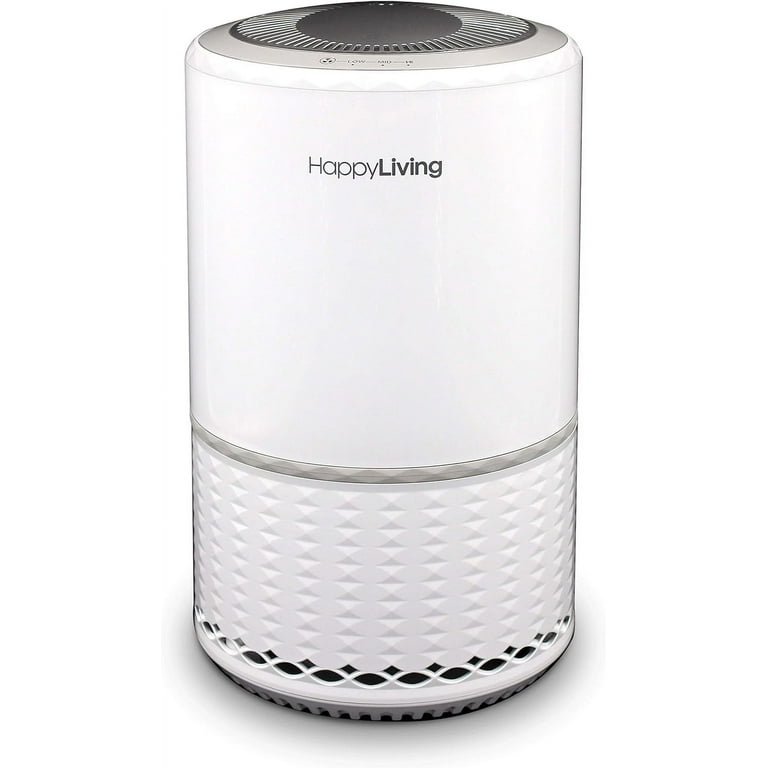
Credit: www.walmart.com
Choosing The Right Air Purifier Hepa Filter
Moreover, choosing the Right Air Purifier hepa filter means understanding your specific needs. A HEPA (High Efficiency Particulate Air) filter can snatch allergens, dust, and other tiny nasties from your living space, making each breath a fresher one. So, check out these tips to pick a purifier that ticks all your boxes.
Consider Room Size
Furthermore, Room size matters a ton in air purifier efficiency. Each purifier covers a certain area. Measure your space or grab room dimensions before shopping. So, look for models designed for your room’s square footage to ensure optimal air quality.
Hepa Filter Replacements
Additionally, HEPA filters need replacing. Their lifespan depends on usage and air quality. So, it’s important to note filter replacement costs and frequency.
Some last months; others, a year. A long-lasting filter saves cash and hassle.
- Check filter lifespans
- Consider replacement costs
- Opt for long-lasting filters where possible
Additional Features To Look For
Moreover, beyond the basics, features can boost air purifier performance. So, here are a few to keep an eye on:
Feature Benefit UV-C Light Kills germs and viruses Ionizer Traps airborne particles Smart Sensors Adjusts settings based on air quality Quiet Operation Ensures a peaceful environment Smart sensors auto-adjust. Furthermore, quiet modes keep noise down, making purifiers with these worth a look.
Installation Process Of Air purifier hepa filter
Additionally, welcome to our step-by-step guide on installing a HEPA air purifier. A clean air environment at home is essential for health. Moreover, to ensure your air purifier works efficiently, proper installation is crucial. Follow this simple installation process.
Placement Tips
Furthermore, choosing the right spot for your HEPA air purifier is vital. Air flow should not be blocked. Here are some placement tips:
- Place the purifier in a room where you spend most of your time.
- Keep it at least 3 feet away from walls and furniture.
- Ensure it’s not near any heat sources like radiators.
- Avoid corners and areas with low air circulation.
Initial Setup Guidance
Setting up your HEPA air purifier correctly ensures it operates effectively. So, Let’s walk through the initial setup:
- Unbox your air purifier hepa filter and remove all packing materials.
- Position the purifier based on the placement tips provided.
- Then, install the HEPA filter if it’s not pre-installed. Slide the filter into place.
- Plug in the purifier into a wall outlet.
- Once the HEPA filter is installed, turn on the purifier and select your desired settings.
Step Action Tip:
- Before proceeding, unbox your air purifier and prepare to review the user manual.
- Position Maximize air flow .
- Install HEPA filter Handle with care .
- Power supply Use a surge protector.
- Settings adjustment Customize for comfort.
By following these simple steps, your air purifier will be ready. Breathe easily knowing you’ve installed your HEPA air purifier filter the right way.

Credit: www.amazon.com
Maintenance And Care For Hepa Filters
Additionally, HEPA filters trap harmful particles, including dust, pollen, and smoke. Keeping these filters clean ensures clean air and efficiency.
Moreover, proper care extends the filter’s life. Let’s explore how to maintain your air purifier’s HEPA filter effectively.
Cleaning Techniques
Certain HEPA filters are washable or vacuumable. But most are not. Always check the manufacturer’s manual first. If your filter is washable:
- Turn off the purifier.
- Remove the filter gently.
- Rinse it under running water.
- Let it dry completely before reinstalling.
Do not use cleaning agents. They damage the filter’s delicate fibers. A vacuum cleaner can help if it’s vacuumable.
Use a soft brush attachment and gently run it over the filter. This removes dust without harming the filter.
When To Replace Filters
HEPA filters need replacing over time. Depending on the use, most need replacement every 12 to 18 months. Signs you might need a new filter:
- Increased allergy symptoms
- Bad odors coming from the purifier
- The purifier works harder to clean the air
Furthermore, keep track of your filter’s lifespan by writing the replacement date, and periodically check the airflow. Follow the manufacturer’s guidelines strictly for optimal maintenance.
Common Myths About Air Purifier Hepa Filter
Moreover, busting myths about HEPA air purifiers is essential for informed choices. Many believe they emit harmful ozone; yet, true HEPA filters simply capture pollutants without chemical reactions. Contrary to popular belief, they require regular filter changes, not just occasional dust-offs to maintain efficacy.
Moreover, HEPA air purifiers are popular for their efficiency in trapping airborne particles. Yet, several misconceptions surround these devices. This section addresses the most common myths, clarifying what HEPA filters can truly offer.
Misconceptions Addressed
- HEPA purifiers emit harmful ozone: True HEPA filters do not produce ozone as they simply trap particles.
- All air purifiers are the same: Only those labeled as True HEPA meet strict efficiency standards.
- HEPA filters can trap viruses: Most viruses are too small; however, they are often attached to larger particles which HEPA can capture.
- HEPA purifiers eliminate odors: Alone, HEPA filters do not remove odors, a combination with activated carbon is needed for this.
What Hepa Can And Cannot Do
HEPA Can Do: HEPA Cannot Do: Capture 99.97% of particles 0.3 microns in size Remove gases or chemical fumes Trap dust, pollen, and pet dander Completely sterilize air Reduce allergy and asthma symptoms Filter out particles smaller than 0.3 microns efficiently To maximize effectiveness, frequent filter changes and the right purifier size for your space are essential. A successful air filters may be created by using a HEPA filter with extra air-cleaning technology..
Comparative Analysis: Hepa Filters Vs. Other Air Filtration Systems
Understanding the differences in air filtration technology is essential for clean indoor air. HEPA filters stand out, but alternatives exist. So, Let’s compare HEPA filters to other systems.
Ionizers And Ozone Generators
However, ionizers and ozone generators target airborne particles differently. Electric charges are used by ionizers to bind particles, while ozone generators release ozone to cleanse the air. Both have unique pros and cons.
- Ionizers: Reduce particles, no filter changes needed.
- Ozone Generators: Neutralize odors, may produce harmful ozone.
Activated Charcoal Air Purifier HEPA Filter
Activated charcoal filters use carbon’s adsorption power. They trap odors, gases, and chemicals. Unlike HEPA, they don’t catch fine particulates.
Pros Cons Eliminate odors Less effective for allergens Trap chemicals Require frequent replacement Uv Light Purifiers
UV light purifiers use ultraviolet light to kill germs. Additionally, they destroy bacteria, viruses, and mold. However, they must be used with filters to trap particles effectively.
- UV light: Destroys microorganisms.
- Combination use: Needed with other filters for particles.
In conclusion, each system has strengths. HEPA excels in particle removal. Ionizers, charcoal filters, and UV purifiers have unique benefits. Choose based on specific needs.
Real-life Success Stories of air purifier hepa filter
Air purifier HEPA filter transform indoor air quality. Many users share remarkable health benefits. Their experiences highlight these filters’ effectiveness.
Testimonials From Users
Real people, breathing easier, validate HEPA filters’ life-changing impacts:
- Emma R. – “My allergies improved within days. Best investment for my home!”
- John D. – “Asthma attacks reduced significantly. I’m finally sleeping through the night.”
- Lisa P. – “Our baby’s constant coughing stopped. The air feels so fresh now!”
Scientific Studies And Results
Studies reinforce user testimonials with hard data. Explore the science-backed successes:
Study Participants Results HEPA in Urban Homes 100 households Reduction in fine particulates by 55% HEPA Impact on Allergies 200 allergy patients 45% felt fewer allergy symptoms Asthma Control Study 150 asthma sufferers Decrease in nightly asthma flare-ups
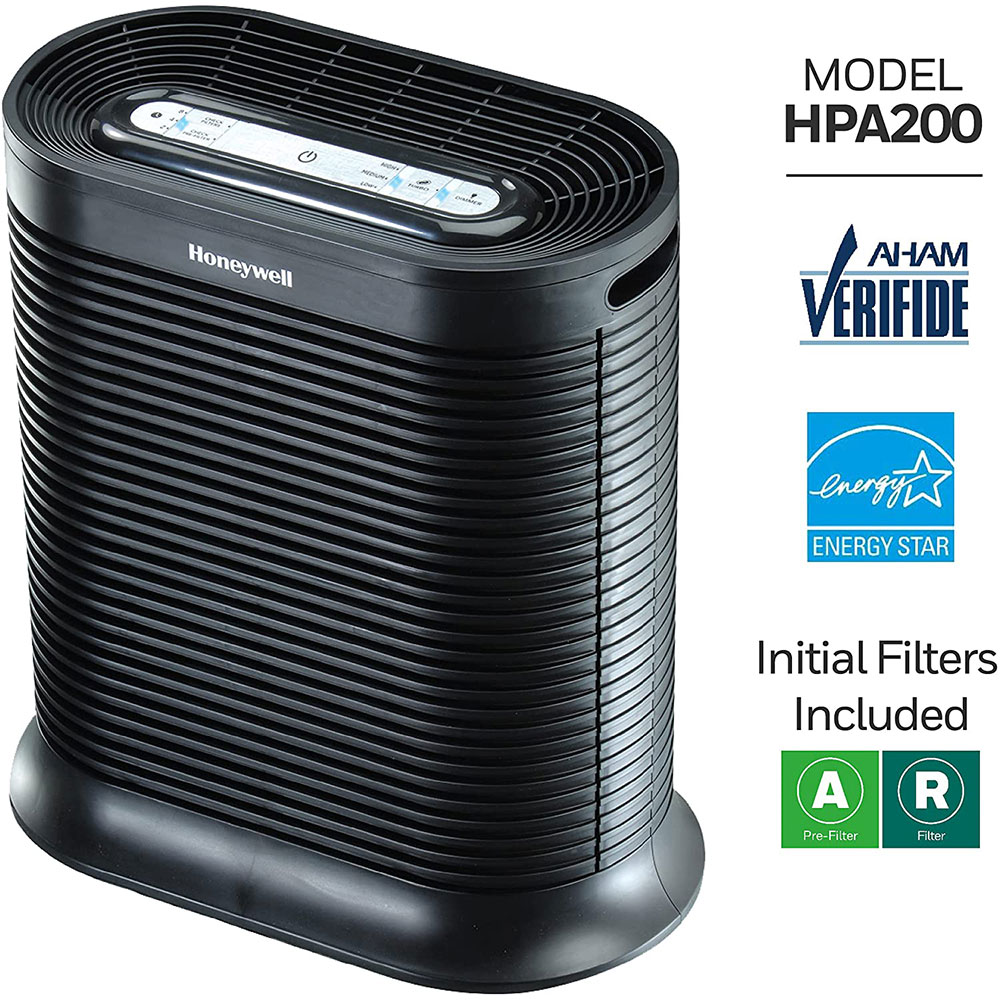
Credit: www.honeywellstore.com
Frequently Asked Questions For Air Purifier Hepa Filter
What Is A Hepa Filter In Air Purifiers?
A HEPA filter is a high-efficiency particulate air filter designed to capture 99. 97% of particles that are at least 0. 3 microns in size from the air.
How Often To Replace Hepa Filters?
HEPA filters in air purifiers should typically be replaced every 12 to 18 months, but check your model’s manual for specific guidance.
Can Hepa Filters Remove Viruses?
Yes, HEPA filters can capture particles as small as viruses, but are not always effective against all virus types alone without supplemental technology like UV light.
Conclusion
Wrapping up, the benefits of HEPA air purifiers are clear. They trap harmful particles and enhance indoor air quality. Investing in one could mean a breath of fresh air for your health and home. Remember to replace filters as recommended to maintain efficiency.
Breathe easy knowing you’ve made a smart choice for a cleaner environment.



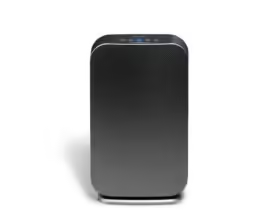
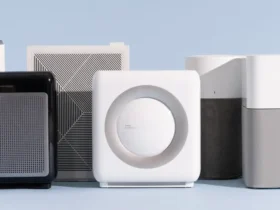
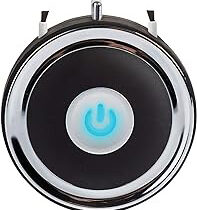
Leave a Reply